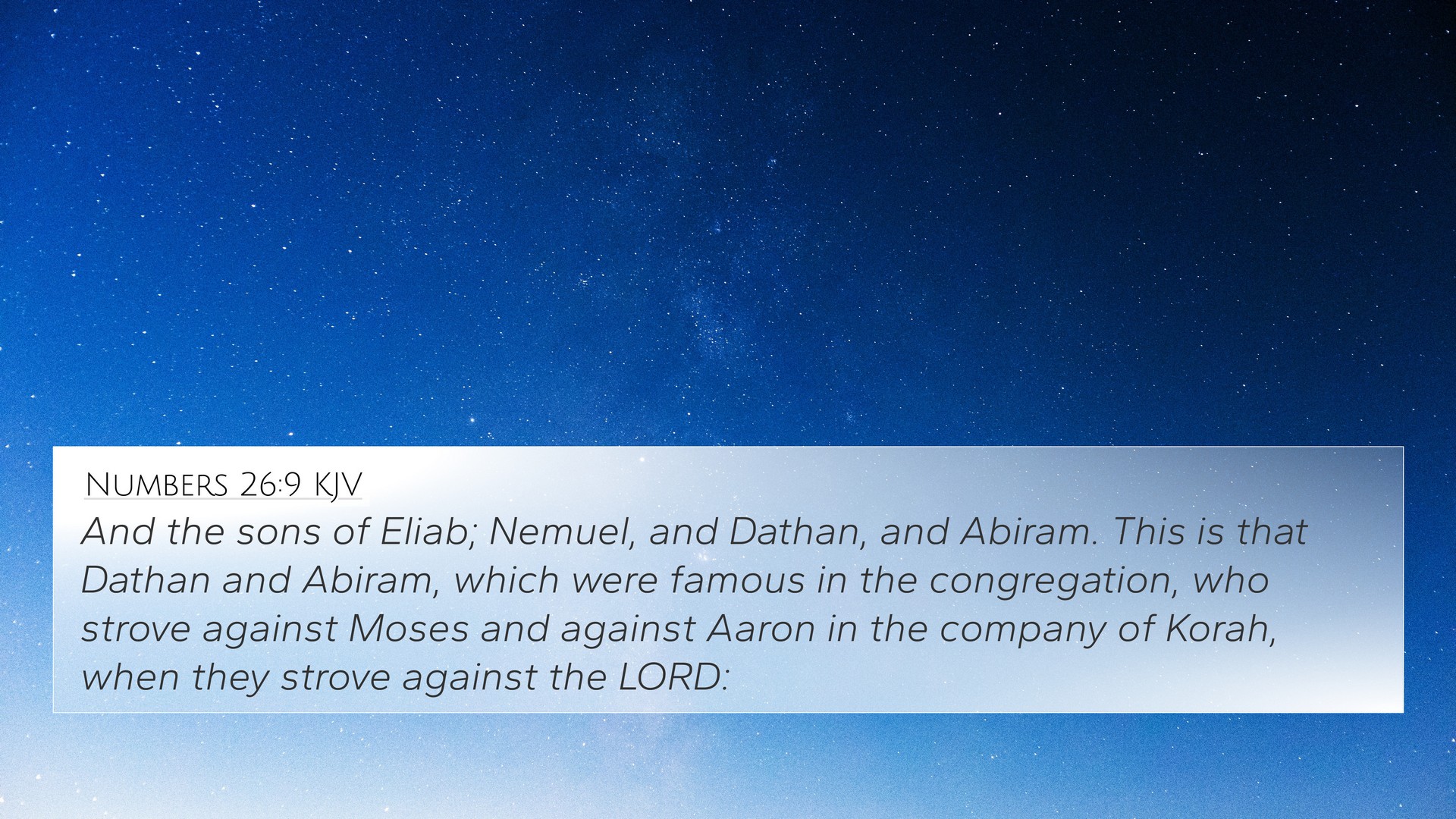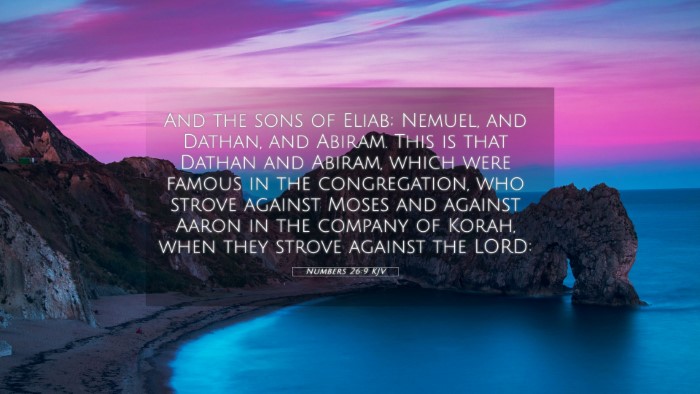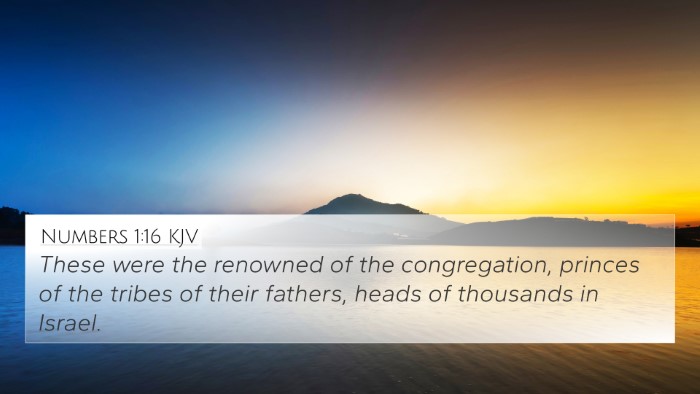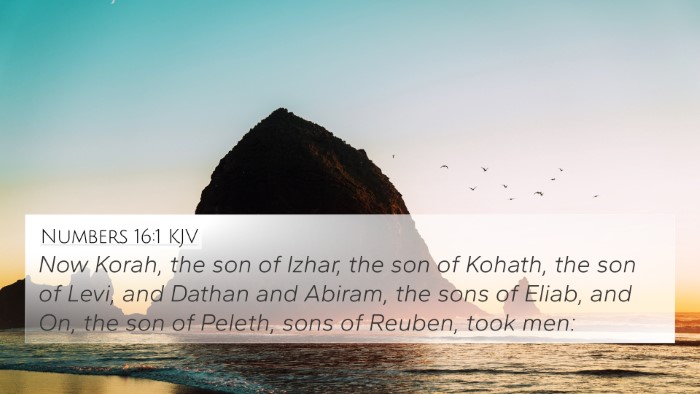Understanding Numbers 26:9
Numbers 26:9 states: "And the sons of Eliab; Nemuel, and Dathan, and Abiram: this is that Dathan and Abiram, which were famous in the congregation, who strove against Moses and against Aaron in the company of Korah, when they strove against the Lord." This verse provides vital historical insight into the rebellion against Moses, which had significant ramifications for the Israelites.
Contextual Analysis
This verse is situated within a larger narrative detailing the census taken of the Israelite tribes. The mention of Dathan and Abiram is particularly notable due to their role in the rebellion against God’s appointed leaders. According to Matthew Henry, this rebellion wasn't merely against Moses and Aaron, but ultimately against God's authority. This elevates the theme of obedience and the consequences of dissent from divine order.
Character Insights
- Dathan and Abiram: Known for their strife against Moses, their ambition is indicative of a spirit of insurrection that permeated the camp of Israel.
- Korah's Rebellion: Their partnership with Korah highlights the dangers of collective dissent and ambition.
- Eliab: As the father of these rebellious figures, Eliab's legacy raises questions about familial responsibility and influence.
Thematic Connections
The conflict presented in this verse echoes throughout the Scriptures. Albert Barnes notes that the story of Korah’s rebellion serves as a cautionary tale about the repercussions of challenging God’s chosen leaders. It reflects the struggle between divine authority and human ambition, a theme prevalent in various biblical narratives.
Cross-References
To understand the complexity of Numbers 26:9, we can consider several cross-references that elucidate themes of rebellion and divine judgment:
- Exodus 6:23: This verse introduces Aaron and Moses, grounding the leadership structure of Israel.
- Numbers 16:1-35: Detailed narrative of Korah's rebellion and the direct consequences faced.
- Psalm 106:16-18: A recounting of Israel’s disobedience leading to divine anger.
- Jude 1:11: New Testament mention of those who rebelled against God’s authority, reflecting a continuous theme of rebellion.
- 1 Corinthians 10:10: Paul refers to the consequences of murmuring against God, directly connecting to the narrative in Numbers.
- Hebrews 3:16-19: Illustrates the disobedience of Israel as a lesson for believers.
- Proverbs 6:16-19: Highlights the abomination of discord and strife among brethren.
Lessons and Applications
The narrative surrounding Numbers 26:9 encourages reflection on the importance of unity and respect toward divinely appointed leadership. Adam Clarke emphasizes the spiritual dangers of rebellion within communities of faith. It serves as a warning that discontent and jealousy can lead to severe consequences, not just for the individual, but for the entire community.
Conclusion
Numbers 26:9 provides rich ground for exploration within biblical studies. By cross-referencing with other scriptures, readers can gain deeper insights into the nature of leadership, rebellion, and divine judgment. The thematic connections woven through the narrative invite believers to consider their own attitudes toward authority and community.
Further Study Suggestions
For those interested in delving deeper into the themes of rebellion and divine justice, consider the following:
- Tools for Bible Cross-Referencing: Utilize a Bible concordance or cross-reference Bible study guide to discover related scriptures.
- Identifying Connections: Engage in a comparative study of Old and New Testament teachings regarding leadership.
- Scriptural Themes: Analyze how themes of disobedience and divine authority echo throughout different biblical narratives.






